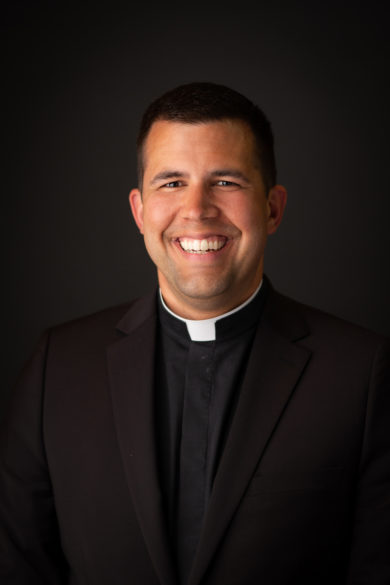In my past three entries I have discussed three of the four dimensions of priestly formation for our seminarians. The human, spiritual and intellectual pillars all serve the greater purpose of forming pastors. Therefore, the fourth and final dimension we will examine is the pastoral dimension. This dimension of priestly formation can be seen as a stand-alone pillar with different tasks highlighted and required during seminary training, but it can also be seen as the synthesis of everything that a man learns and becomes during his time in the seminary.

If a seminarian is attentive to his human formation, then he becomes both more approachable and more effective at inviting others into a more robust faith. If a seminarian is diligently praying and growing in relationship with Jesus Christ, then he’ll be a more inspiring spiritual father to his parishioners. If a seminarian has taken the time and the effort to really apply what he has learned in the classroom, he is better able to share the truths in the faith with his people in a way that is helpful rather than weaponizing the truth and steering people away from his counsel.
Concretely, the seminarians are given opportunities for pastoral formation both inside the seminary and outside its confines. I remember with great clarity working in the student government at Notre Dame Seminary (NDS). There are plenty of big opinions and competing agendas when you live in a building with 130 other men, and so my year as the president of the student body at NDS was very formative. I was able to gain practice in collaborating effectively and empowering others with different skill sets than mine. I also was able to make mistakes in a controlled environment with the safety net of the seminary administration and faculty there to back me up. Our seminarian, Carlisle Beggerly is currently serving as NDS student body president, please keep him in your prayers!
Outside the seminary there are many different pastoral outreach opportunities. The seminary will typically either assign or allow a seminarian to pick a ministry that they’d like to be involved with during an academic year. This could include prison ministry, homeless outreach, or working in Catholic Schools or parish religious education. All of these opportunities allow the seminarian not only to reflect on their own pastoral skills and development, but they also allow the members of the church to give feedback on his development both to the individual seminarian and those entrusted with his formation.
The four dimensions of priestly formation, human, spiritual, intellectual and pastoral, work together. They are helpful categories for the seminarians and their supervisors to gauge their aptitude for diocesan priesthood. Every man who is ordained a priest should be able to diligently and effectively lead the people of a parish, even if he will not immediately be named a pastor. These dimensions help us create goals and gauge progress so that the people of God can be served by the pastors they need.
– Father Nick Adam
If you are interested in learning more about religious orders or vocations to the priesthood and religious life, please email nick.adam@jacksondiocese.org.
